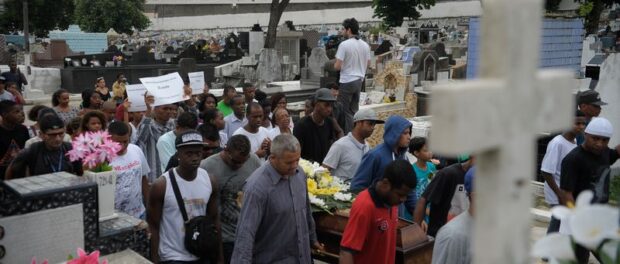
For the original article by Marcelo Castañeda in Portuguese published on his Lida Diária blog click here.
Sometimes I have the impression that we discuss the political climate with our heads in the clouds and feet in the air. We speak of political reform as if it were a matter of merely adjusting electoral rules to resolve clientelism and coronelism–the dealers in the political game of representation in federal legislation–and I will limit my thoughts to this, but I could extend this reasoning to the state and municipal levels.
In the favelas, the political reform required is simply the guarantee of life to enable political participation in the widest sense of social organization in favor of common demands. In the favelas, the fight is to stay alive when faced with a murderous Military Police and a war on drugs that victimizes people each day, including police officers.
Favela residents are not alienated; they’ve already lost hope for representation, as they are simply restricted from politics because of their fear of dying if they organize themselves. Even so, there is organization in the favelas.
On the night of Saturday May 7, Eliane was having fun in the streets of Complexo do Alemão in the North Zone of Rio de Janeiro. She was targeted by shots that were only justified by the economic crusade with moral undertones that is drug prohibition. It doesn’t matter that it was Mother’s Day on Sunday, that she had three children. Independent media activists quickly managed to report the incident on social networks, but this does not prevent the killings. From trying so hard, those who fight against this falter when they do not see any possibility for change, which will only be possible with the incitement of people who cannot imagine the way of existence in the favelas.
These deaths no longer cause surprise, but those who live and work in the favelas know the rage of losing a loved one because of gun fights. What is commonplace for news agencies, hidden in the corner of a newspaper page, leads to the accumulation of rage that one day will erupt. As it says in the famous samba lyrics, “when the people of the favela come down the hill and it isn’t Carnival” is when we will have some possibility for social change. For this, the end of the Military Police and the legalization of drugs must comprise any proposal for political reform that does not only benefit the same people as always, guaranteeing the poor the right to participate in politics.
